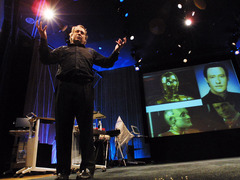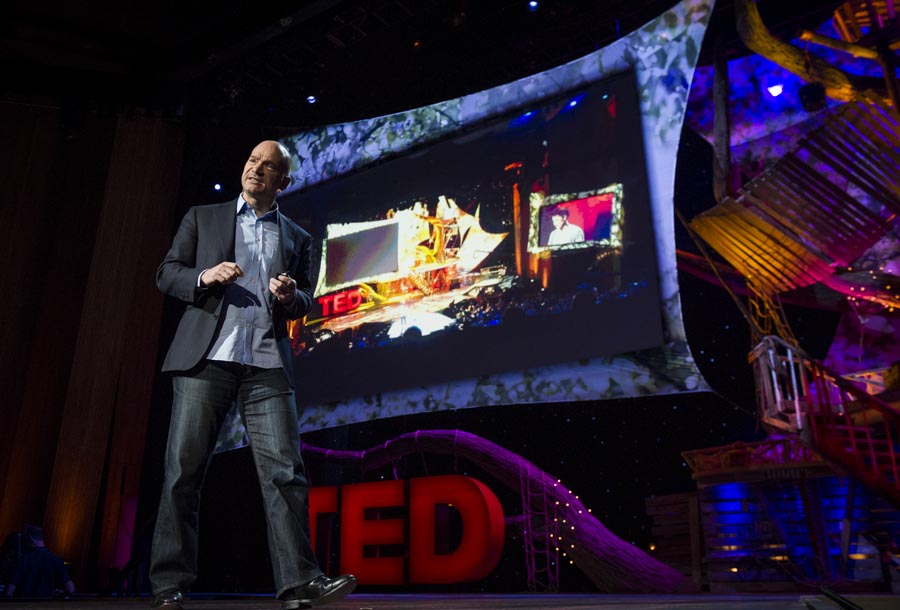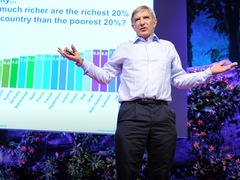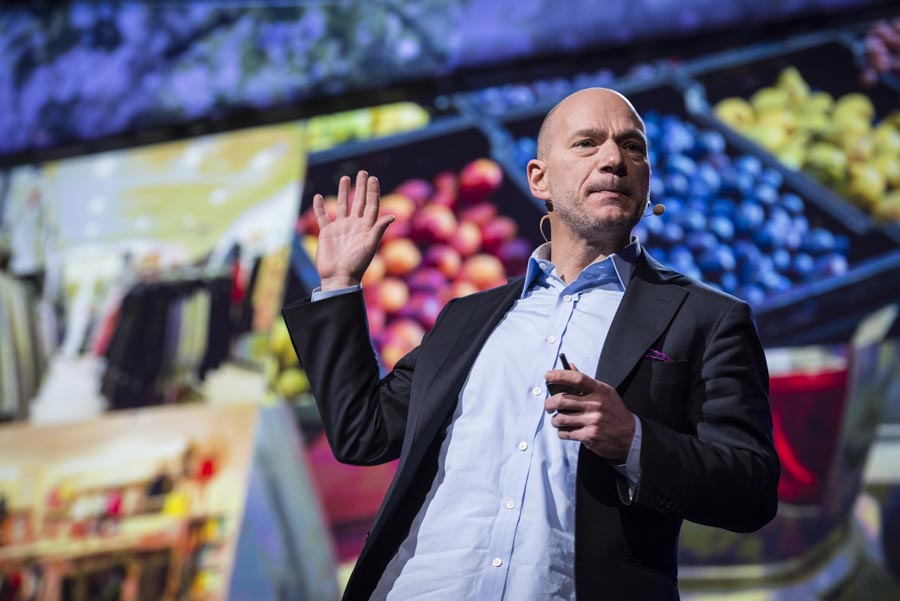 Rodney Brooks: Robots will invade our lives
Rodney Brooks: Robots will invade our lives
The rise of droids
Andrew McAfee starts his TED2013 talk by making a forecast: “In the world that we’re creating very quickly, we’re going to see more and more things that look like science fiction and fewer and fewer things that look like jobs.”
It’s clear, he says, that big technology-driven changes in employment are coming. For example:
- Autonomous cars mean we will need fewer truck drivers.
- Hooking Siri up to Watson will mean that we require less customer service.
- We’ve already taken R2D2-like robots and set them to lugging goods around warehouses. So we need fewer people to work the shelves.
Now, he acknowledges that people have been predicting that technology will destroy employment for the past 200 years, and they’ve always been wrong. Why is this time different? Well: “In the last few years machines have demonstrated skills they’ve never had before.” There is technology today that can read, write, speak, understand, hear, write and translate like never before. He and Erik Brynjolfsson are calling this “The New Machine Age.”
 And McAfee claims this is the best economic news today. It will allow us to continue to keep output up while prices go down and volume and quality explode. He knows this sounds materialistic, but says, “It’s not shallow materialism, it’s abundance… Once the androids start doing our jobs, we don’t have to do them anymore. That frees us from drudgery and toil.”
And McAfee claims this is the best economic news today. It will allow us to continue to keep output up while prices go down and volume and quality explode. He knows this sounds materialistic, but says, “It’s not shallow materialism, it’s abundance… Once the androids start doing our jobs, we don’t have to do them anymore. That frees us from drudgery and toil.”
When he tells his friends in Cambridge, Mass., and Silicon Valley about that, they get very excited and talk about imagining a new society. And we are seeing some of that: “Craftsmen and hobbyists are now Makers, and are responsible for tremendous innovation.” Artists are able to do things they never could before.
 Andrew McAfee: Are droids taking our jobs?
Andrew McAfee: Are droids taking our jobs?
What could go wrong?
McAfee points to some challenges:
Economic: Corporate profits have never been higher, but returns to labor have never been lower. This is clearly bad news — bad for labor and for manufacturers. To sell to people you need prosperous middle class, which is vanishing.
Societal: McAfee isn’t worried about robots taking over, but there are deep worries. He illustrates with a tale of two workers.
- The first is upper middle class. Call him Ted. He is college educated and works as a manager, doctor, lawyer, engineer, scientist, professor, content producer, etc.
- The second is Bill. He didn’t graduate college, and is a blue-collar or low-level white-collar worker.
A couple generations ago, BIll and Ted were the same. They had similar incomes and lives. But there have been massive divergence since then as we injected technology into the economy. And not just in income, but also in marriage stability, likelihood of going to prison, and more.
What his friends in Silicon Valley fail to realize is that they are Ted, and that’s why the future looks bright for them.
 Richard Wilkinson: How economic inequality harms societies
Richard Wilkinson: How economic inequality harms societies
What can we do?
In the short term, McAfee says, the standard Econ 101 playbook will work. In the long term, more is needed, possibly some radical moves. For example, instituting a minimum income. Now he knows that might seem very left-wing, but he notes that it’s been championed by “such frothing-at-the-mouth socialists as Friedrich Hayek, Richard Nixon and Milton Freidman.”
There are also problems with education. McAfee went to Montessouri school, where he learned as a kid: “The world is an interesting place, and my job is to go explore it.” But after Montessori, he was sent to a public school. “It was like being sent to the gulag. I felt like the point was to bore me into submission.” Clearly that has to change.
He notes that there are some good things happening: Changes in education, business leaders moving toward Conscious Capitalism, sustained and data-driven efforts to intervene in troubled communities. But he won’t pretend this is enough. “It’s not going to make things better for the unemployed by sending them back to Montessori.”
The good news is that he thinks we are finally getting the diagnosis right. “People are waking up to the fact that we are in a new machine age, and the rules are different now … The plain facts of the machine age are becoming clear to us, and I have every confidence that we’re going to use them to chart a good course into the challenging, abundant economy that we’re creating.”
Andrew McAfee’s talk is now available for viewing. Watch it on TED.com»

Comments (10)
Pingback: Andrew McAfee: What will future jobs look like? – [TED Talks] | mostly music
Pingback: Technology Will Have an Impact On Jobs if We Don’t Build a Smarter Future | The S.P.A.C.E Program
Pingback: Technology is Eating Your Job Part Two: For Those Who Need More Convincing | Resilient Careers
Pingback: Our jobs challenged by the machine, and why the answer is not fear
Pingback: Our jobs challenged by the machine, and why the answer is not fear
Pingback: Cinco grandes ideias sobre o futuro do trabalho no TED 2013 : Movebla
Pingback: Why no one has any idea how to solve the problem of employment
Pingback: Humans are Taking Jobs Away From Robots, Not Vice Versa : CloudAve
Pingback: Wizmo Blog » Blog Archive » What happens after the droids take our jobs? Andrew McAfee at TED2013